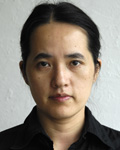
Qiu Xueqiang, Deputy Procurator General of China's Supreme People's Procuratorate, said in an interview with Xinhua News Agency in early November that the Central Government has approved the founding of a new anti-corruption administration, which will directly investigate major corruption cases. The head of the new administration will be a vice-ministerial-level official. The decision will make it easier for the administration to exercise management over the country's whole anti-graft system.
New arrangements were made on the rule of law at the Fourth Plenary Session of the 18th Communist Party of China (CPC) Central Committee held in October, together with new requirements on how to push forward anti-corruption efforts. The founding of the new administration aims to press ahead with the ongoing campaign targeting "both flies and tigers"—corrupt officials at both low and high levels. While it is a show of the central leadership's commitment to combating corruption, it also implies severe challenges.
Before the release of the information on the founding of the new administration, a piece of news attracted extensive attention: More than 200 million yuan ($33 million) in cash was found in the house of Wei Pengyuan, deputy head of the Coal Department of the National Energy Administration, an agency supervised by the National Development and Reform Commission (NDRC). This was the largest amount of cash to be seized at one time by procuratorate organs since the founding of the People's Republic of China in 1949.
The current anti-graft efforts were described by Qiu as "unprecedented" in four aspects: the severity of corruption; the Party's determination and strength in fighting against corruption; the public's confidence in anti-corruption activities and in the CPC; and the challenges and opportunities facing anti-corruption efforts.
More attention should now be paid to tackling duty crimes. Particularly, crimes tend to happen in a certain department or a certain region. A single criminal case or suspect will sometimes serve as a clue to investigate more serious cases, involving the whole department or even the whole system it oversees. For instance, the Supreme People's Procuratorate has investigated 11 NDRC officials including Wei. Notably, most of the former leaders of the NDRC Department of Price have been found to be suspects of duty crimes, forming a diverse web of interests that poses serious damage to economic and social development as well as a big challenge to the fight against corruption.
The anti-corruption administration is an institution under the Supreme People's Procuratorate. The administration was first founded in 1995. It has played an effective role in fighting against corruption; however, new problems have cropped up in recent years, affecting the effectiveness of criminal investigations. In addition to the administration, the Supreme People's Procuratorate currently has two other anti-graft agencies in charge of dealing with neglect of duty and preventing such crimes. These three organs have their respective duties, but in some cases, the suspects are connected to both bribery and misconduct, posing problems for the investigating staff. Also, there are often too many cases facing limited staff, while power is too loosely distributed. All these striking problems are set to be solved through reform.
The upgrading of the anti-corruption administration shows that the Supreme People's Procuratorate is shifting its focus to combating corruption. In the past, by relying on its own power, the administration often found it difficult to score high effectiveness in investigations and corruption crackdowns. When the rank of its head is enhanced, the administration will be able to make full use of its power within the procuratorate system while mustering additional energy and forces. This will also help to relieve the CPC discipline inspection departments of the pressure of dealing with corruption cases.
The CPC Central Commission for Discipline Inspection (CCDI) remains the most powerful anti-corruption institution in China. The new anti-corruption administration of the Supreme People's Procuratorate will more effectively cooperate with the CCDI. Once the CCDI finds that officials investigated for violating Party rules are involved in violations of the country's laws, it can hand them over to procuratorate organs for further investigation, demonstrating the principle of the rule of law in China.
The upgrading of the administration is a positive example for the reform of the country's anti-corruption system. The administration exerts guidance and instruction over nationwide anti-graft efforts. From top to bottom, the overall reform within the country's anti-corruption system will not only strengthen the administration's leadership but also bring into full play the role of anti-corruption agencies across the country.
